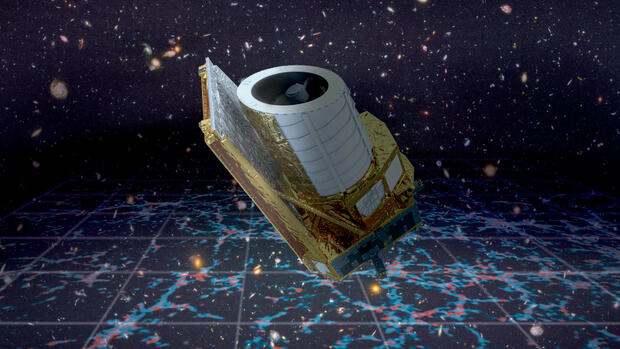Berlin, Cape Canaveral A look at the clear night sky, especially with binoculars or a telescope, reveals it: so many stars and galaxies! But it’s far too few, cosmologists would say. If they calculate how the universe is developing and put all visible matter into their formulas, it absolutely doesn’t add up. This would not explain the universe as we see it today.
The math only works out when they add far larger amounts of invisible ingredients: dark matter and dark energy. The names are arbitrary because the researchers don’t know exactly what it is.
The Euclid space telescope is intended to help at least a little with the reconnaissance. At 11:11 a.m. local time on Saturday, it launched into the blue skies over Florida aboard a SpaceX Falcon 9 rocket. The separation of the first rocket stage, which then returned to earth and was processed for the next flight, took place according to plan.
Read on now
Get access to this and every other article in the
Web and in our app free of charge for 4 weeks.
Further
Read on now
Get access to this and every other article in the
web and in our app.
Further
